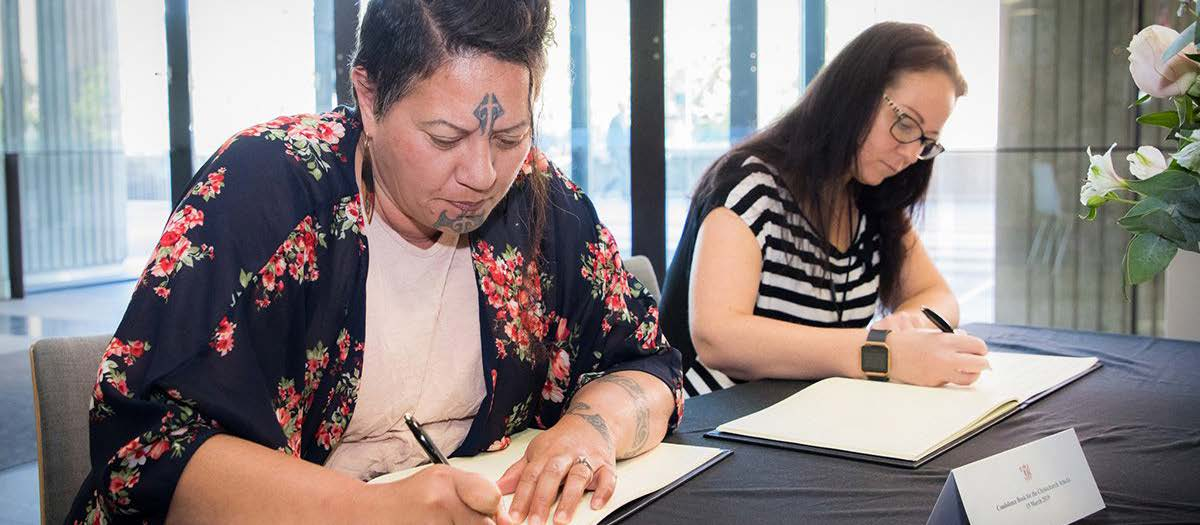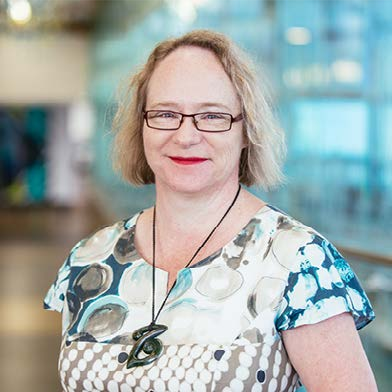Viewpoint: #GiveNothingtoRacism
Over the weekend, following the horrific massacre of members of our Muslim community in Christchurch, I went through a roller coaster of thoughts and emotions – like many others.
As many commentators have said, we should not be surprised. We must acknowledge that many people in the Muslim community and in other communities have been saying that they experience racism, hatred and discrimination in Aotearoa, and that they feared worse would happen.
I passionately believe in the role of libraries in building strong, thriving, inclusive, diverse communities. I believe in the LIANZA vision – People and communities connected and empowered by information. I believe in the Auckland Libraries vision – Connected communities that enhance the mana of each and every Aucklander. I also know that it is easy to be complacent and feel good about these statements, and assume that these outcomes will happen because the potential is there and because we want them to. That potential will only be realised if we take actions that make an impact on these outcomes, and work with our communities to understand what that means to them, and co-create inclusive places, programmes and activities.
To help me focus not on grief or anger but on action, I started a Twitter discussion about what libraries in Aotearoa are doing; can do more of; should be doing. I asked: ‘What will libraries in Aotearoa do that will help build safer more inclusive communities following this dark day? What will librarians do? Let’s talk.’ The kōrero that followed covered several different areas to work through:
As many commentators have said, we should not be surprised. We must acknowledge that many people in the Muslim community and in other communities have been saying that they experience racism, hatred and discrimination in Aotearoa, and that they feared worse would happen.
I passionately believe in the role of libraries in building strong, thriving, inclusive, diverse communities. I believe in the LIANZA vision – People and communities connected and empowered by information. I believe in the Auckland Libraries vision – Connected communities that enhance the mana of each and every Aucklander. I also know that it is easy to be complacent and feel good about these statements, and assume that these outcomes will happen because the potential is there and because we want them to. That potential will only be realised if we take actions that make an impact on these outcomes, and work with our communities to understand what that means to them, and co-create inclusive places, programmes and activities.
To help me focus not on grief or anger but on action, I started a Twitter discussion about what libraries in Aotearoa are doing; can do more of; should be doing. I asked: ‘What will libraries in Aotearoa do that will help build safer more inclusive communities following this dark day? What will librarians do? Let’s talk.’ The kōrero that followed covered several different areas to work through:
Placemaking – How can our spaces (physical and online) look so that they reflect our diversity and all communities can feel safe and welcome while visiting them? Christchurch libraries reached out to provide safe spaces and reiterated that all were welcome. Human libraries were suggested – providing an opportunity for people to speak to people with different experiences. We can build on the festivals of our community that we reflect and celebrate. This year the family focused Eid festival is June 4–5th. Is this an opportunity to focus on growing understanding of the Muslim and migrant experience?
Diverse stories – our collections and reading programmes. We know reading for pleasure builds empathy in children. Do we have enough stories about different beliefs and cultures? Can we collect stories of our local migrant children and families to publish and share? Let's share some great books like Hats of Faith. Do our language collections reflect our communities? Do we use services like Language Line to help people interact with us in their own language? Collections of the future – does what we collect for future research include the stories of migrants, refugees, marginalised groups?
Diverse staff – do our library staff reflect our communities? Are our diverse staff supported and safe? How do we deal with hateful language and behaviour directed to them by those using our libraries or other staff? How can we support each other to challenge hurtful behaviour from librarians and customers?
Promoting critical thinking skills to assess information and news, to understand the bias or background to the sources. Libraries can also be a place in our community where discussions can be held, where people of different faiths, ethnicities, etc can learn about each other, accepting our differences and valuing the power of diversity to ensure the wellbeing of each and every New Zealander.
Diverse stories – our collections and reading programmes. We know reading for pleasure builds empathy in children. Do we have enough stories about different beliefs and cultures? Can we collect stories of our local migrant children and families to publish and share? Let's share some great books like Hats of Faith. Do our language collections reflect our communities? Do we use services like Language Line to help people interact with us in their own language? Collections of the future – does what we collect for future research include the stories of migrants, refugees, marginalised groups?
Diverse staff – do our library staff reflect our communities? Are our diverse staff supported and safe? How do we deal with hateful language and behaviour directed to them by those using our libraries or other staff? How can we support each other to challenge hurtful behaviour from librarians and customers?
Promoting critical thinking skills to assess information and news, to understand the bias or background to the sources. Libraries can also be a place in our community where discussions can be held, where people of different faiths, ethnicities, etc can learn about each other, accepting our differences and valuing the power of diversity to ensure the wellbeing of each and every New Zealander.
|
Free speech vs hate speech
In this same issue the Standing Committee on Freedom of Information has written a column on how libraries can balance the right to freedom of expression with keeping library spaces safe and welcoming to all members of their communities. Libraries have a role in promoting an enabling inclusivity where all individuals are treated fairly and with courtesy, dignity and respect, free from bullying, harassment and discrimination. Many of us will have attended vigils, marches, visited mosques, marked 2 minutes of silence, or worn a headscarf to show our support of Muslims. At a vigil in the Auckland Domain, where thousands lit candles, wished each other peace, and listened to speakers, Ngāti Whatua o Orākei performed a special karanga of fifty women, each representing one of the victims. It was sombre and moving. Some of the audience were uncomfortable with what some of the speakers were saying. For me it is time now as a Pākeha with privilege to listen in order to understand rather than seek to be understood. I must help keep the discussion centred on the lived experience of Muslims, of Māori and Pasifika people, of migrants, of any non-white people, of those who are different in any way and experience discrimination and hatred because of it. I must reach out with love and compassion, and challenge racism in every quarter. Waiho i te toipoto, kaua i te toiroa / Let us keep close together, not far apart Louise LaHatte, Immediate Past President LIANZA |



